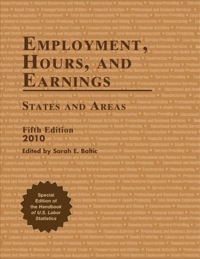Question
Read the following scenario, and then choose the response that accurately completes the last sentence. Jackson (32) and Sally (27) married in March 2020. Chloe
Read the following scenario, and then choose the response that accurately completes the last sentence. Jackson (32) and Sally (27) married in March 2020. Chloe (8), Sally's child from a previous marriage, came to live with them on July 5, 2020. Prior to moving in with Jackson and Sally, Chloe was supported by and lived with her father. Neither Sally nor Chloe's father have ever signed Form 8332, Release/Revocation of Release of Claim to Exemption by Custodial Parent. Jackson and Sally are:
Eligible to claim Chloe as a qualifying child.
Eligible to claim Chloe as a qualifying relative.
Eligible to claim a personal exemption for Chloe.
Not eligible to claim Chloe as a dependent for the purpose of any tax benefit.
Which taxpayer(s) will be required to file a 2020 federal income tax return? None of the individuals are blind.
Patrick (58) has gross income of $18,900. He will file as head of household.
Beatrice (68) has gross income of $19,150. She will file as head of household.
Mark (71) and Darius (62) are married and have gross income of $25,500. They lived together all year and will file a joint return.
Michael (72) and Dee (68) are married and have gross income of $26,950. They lived together all year and will file a joint return.
Which taxpayer(s) will be required to file a 2020 federal income tax return? None of the individuals are blind.
Glenn (67) has gross income of $13,700. He is single and has no dependents.
Sophia (34) has gross income of $18,150. She will file as head of household with one dependent.
Lucas (37) and Ann (35) are married and have gross income of $24,280. They lived together all year and wish to file a joint return.
Jose (66) and Marcia (63) have gross income of $26,950. They wish to file a joint return.
In which of the following situations might it be appropriate for a married taxpayer filing a joint return to file an injured spouse claim?
The taxpayer is unable to pay the tax liability because their spouse has suffered some type of injury.
There is an understatement of tax due because the taxpayer's spouse omitted income on the original return.
The joint overpayment was applied to a prior tax liability of the taxpayer and their spouse.
The joint overpayment was applied to their spouse's past-due child support.
Step by Step Solution
There are 3 Steps involved in it
Step: 1

Get Instant Access to Expert-Tailored Solutions
See step-by-step solutions with expert insights and AI powered tools for academic success
Step: 2

Step: 3

Ace Your Homework with AI
Get the answers you need in no time with our AI-driven, step-by-step assistance
Get Started


